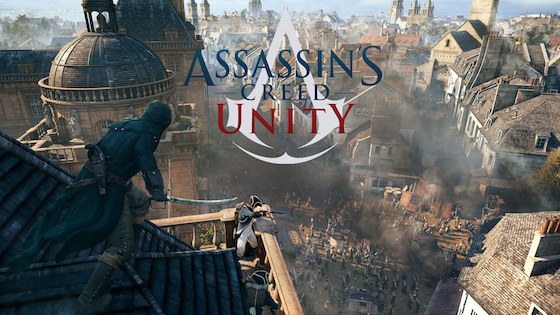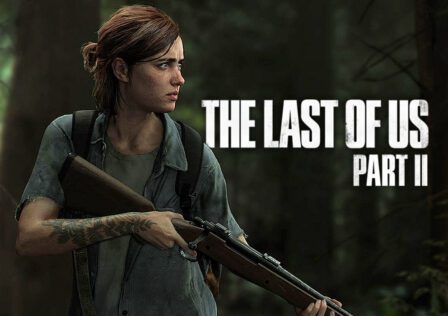I’ve played a lot of sequels this year; in fact, sequels, pre-sequels and reboots still make up 90% of my current game collection – but let’s face it, not all of them were successes. Sometimes a good idea can only be stretched so far. Sometimes expectations are too difficult to meet. Sometimes the thought, care and planning that went into creating an original piece gets thrown away in the heartless grasp for cash that makes up so much of today’s gaming industry.
Having contributed a few thoughts on sequels that greatly improved their franchise, I thought I’d go the other way, and try to home in on some features that make a sequel a disappointment. I figured I’d do it as a list (although not a comprehensive one – there doesn’t seem to be a limit on how shit can hit the fan) – so here it is: the four ways that a sequel can let us down.
4. It has no identity of its own.
I put this one last because, of all the crimes on this list, this is the easiest to forgive. It’s also the easiest to understand.

Commercialism is like evolution – only the fittest survive. IPs that get more than a single showing must be good (or at least controversial), and there’s no point in messing with a good thing. So instead of trying to expand on their ideas, or improve on their mechanics, developers play it safe – producing games that are essentially indistinguishable from the originals.
This doesn’t make the sequels bad, per se; more of something wonderful can still be pretty sweet, but getting a new bicycle for your eleventh birthday isn’t going to have the same impact if you already got one for your tenth (get another bike for your twelfth birthday, and clearly your parents are running out of ideas).
For all our good points, humans are fickle creatures, what delights once may bore twice, and become unbearable by the third, fourth, or sixteenth time. In order to keep our attention, developers of this school trot out bigger and bigger worlds for us to play in (lands, worlds, galaxies – I dub this the Mario vortex), and shiny new creatures to entertain us (hello, Pokemon!). Come to think of it, this whole argument could be summed up as the Nintendo approach – a technique that, true, has netted some great games, but has also failed to innovate in a way that’s truly spectacular.

Most games don’t have Mario’s durability (a point that’s to Nintendo’s credit, before all you fanboys have a go at me). Most ideas have only so much mileage before they begin to dwindle into the mundane. Most kids with three bikes want something else for Christmas. And so do I.
3. There’s no need for it.
Call me a follower if you like, but I love the Harry Potter books. Ron, Hermione, Dumbledore (which interestingly doesn’t get picked up by the spell checker) – they became more than characters to me; they became friends, people I genuinely cared about, who lived in a world I still long to visit. You might think that given this, I would have been heartbroken when the Deathly Hallows came out, and I had to say goodbye to the people and places that meant so much to me.
I’ll admit, reading (and later watching) those last few scenes was decidedly bittersweet, but I was okay with it, because, for the most part, the story was satisfyingly concluded – with (almost) all mysteries answered and plotlines resolved. There was (for me, at least) no need for another sequel, because I knew that with Voldemort dead, Harry would be okay.
My point is that, sad as it sometimes is, a good story has a beginning, middle and an end – a natural conclusion that’s both satisfying and necessary. It’s a critical point that some sequels fail to grasp, and by shoehorning in extra content, developers ruin something that was precious and meaningful. Nowhere is this better illustrated than then case of Bioshock 2.

While Bioshock Infinite was pretty much the perfect sequel – expanding on Bioshock’s reality altering ideas and giving us a new world to play in, while still hanging on to what we loved in the original, Bioshock 2 was one mildly interesting DLC idea (the chance to play as a Big Daddy), stretched into a whole game (and a short one at that).
While well produced and at times fun to play, it still felt like nothing more than expansion pack to its far superior forebear – with no change in scenery, no real alteration in game play and only a handful of new enemies. Worse still was the rushed and nearly nonsensical plot, which lessened the impact of its predecessor’s excellent conclusion. For a series where story and atmosphere are everything, Bioshock 2 managed to befuddle one, and steal the other wholesale – creating nothing new in a world that previously floored us with its originality.
A good sequel isn’t just an extra chapter tacked on to a book we love. It’s a tale all by itself – one that may happen to share a world with the original (or not – Dark Souls 2 kicked that pre-conception in the goolies), but doesn’t detract from it.
2. It’s been rushed.
Assassin’s Creed Unity is getting a lot of flak at the moment and since I’m the follower mentioned above, I figured I’d jump on board.
My problem with Unity isn’t that it’s bad – in fact, there’s a lot that I like about it. By shaking up so many of the core mechanics, it’s certainly done more to enliven the series than the technically polished but definitely derivative AC Rogue. However, all of these good points are overshadowed by massive technical issues – issues that could have been resolved by maybe a year of extra development. But instead of taking that year (or even six months), Ubisoft booted Unity out the door in order to keep up with the release schedule they’ve set for themselves.

This cynical one-game-a-year money grab that big publishers are pushing for (how do you spell EA?) has a lot to answer for. Not only does it force out games that aren’t ready to see the light of day (*cough* Battlefield 4 *cough*), it also prevents developers from having time to properly innovate, to produce games that aren’t derivative knock offs, identifiable only by the number on the end.
Companies want to make money – I get that, and the easiest way to do it is to put out more of what people love, more often – but do production values really have to be sacrificed on the altar of ‘this needs to get out by X’? Would the world really end if the next Assassin’s Creed game was just a couple of months late? As someone who’s really questioning whether she’ll buy an AC game next year, I can tell you that as long as the game was good enough, I’d be prepared to wait.

Instead of trying to improve the formula, or expand on the story, games released on a yearly schedule are content to be ‘just one more’ in a series that might already be in decline – they have no motivation (or time) to produce the kind of sequels that really improve on the original, the ones that remind us what we loved in the first game, while blowing our minds with what we never saw coming.
1. It forgets what made the first game great.
I’ll admit, putting both this and point four on the same list may seem a little unfair, but I’ve never claimed that making games should be easy. And there are plenty of developers who, without losing the magic of the original, have still expanded the sequel in ways that are truly spectacular. I’m not talking about those great games – I’m talking about the ones that have taken something special and systematically removed everything that made it unique. I’m talking about your Thief’s, your Resident Evil 5/6’s, your Hitman Absolutions – games that turned what was special into the mundane.

These games, while not perhaps intrinsically awful, are always the most disappointing – not just because they’ve failed to recapture the spirit of the original, but because by forcing characters or places that we love into situations we abhor, they paint the first game with their incompetence and leave a bitter stain on a something we value highly.
Take Dragon Age 2 for example; a technically polished but ultimately soulless mess that lacked all the character of its excellent predecessor. Literally everything that made the original special was stripped – the diverse environments, the character customisations, the sense that the fate of the world hinged on your actions. They even took away the top down camera – a huge loss for those of us who grew up on Baldur’s Gate and Neverwinter Nights. Bioware seem to have found the magic again for Dragon Age: Inquisition, but only by returning to its playable dwarf roots.

I think part of the problem is that games pay too much attention to what’s going on around them. Instead of focussing on what made their game great, they see what’s popular at the moment and try to adapt to the trend. It’s the reason that Thief’s Garrett lost his snark, Resident Evil turned into Call of Duty with more monsters, and Hitman Absolution became so generic that even a bald man with a barcode tattoo was just another face in the burly white boy crowd.
The simple truth is that games we love are those that stand out, those that have their own identity, that tell stories we haven’t heard before. By aping other games, and trying to keep up with the Joneses, developers sacrifice that with was unique in favour of what they think will sell, apparently missing the point that a good game will be popular even if it’s as random as a mutagenic FPS set in an underwater dystopia.
A great sequel should remind us what we loved about the original, without actually being the original. It should tell its own story, but still remain true to the spirit of its forebears. It should not be rushed to take advantage of a fad, or summer sales period, but released when it’s ready to be released. It should resurrect the soul of a loved one even if it doesn’t reanimate the body.
It should, in short, be made by Valve.


